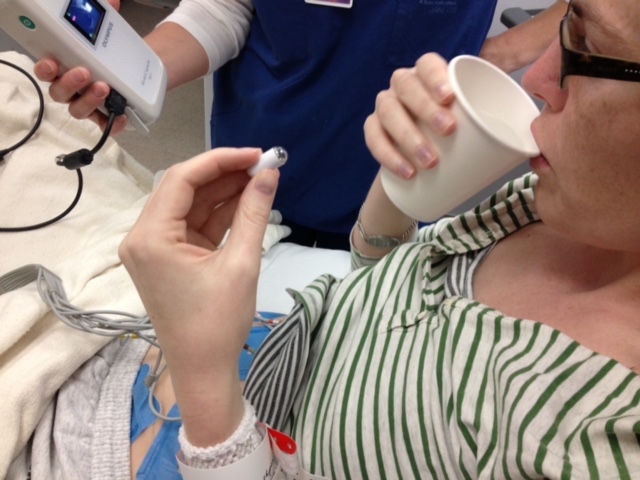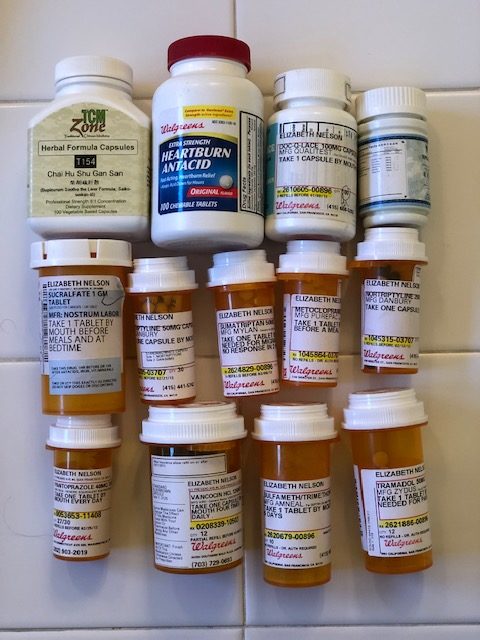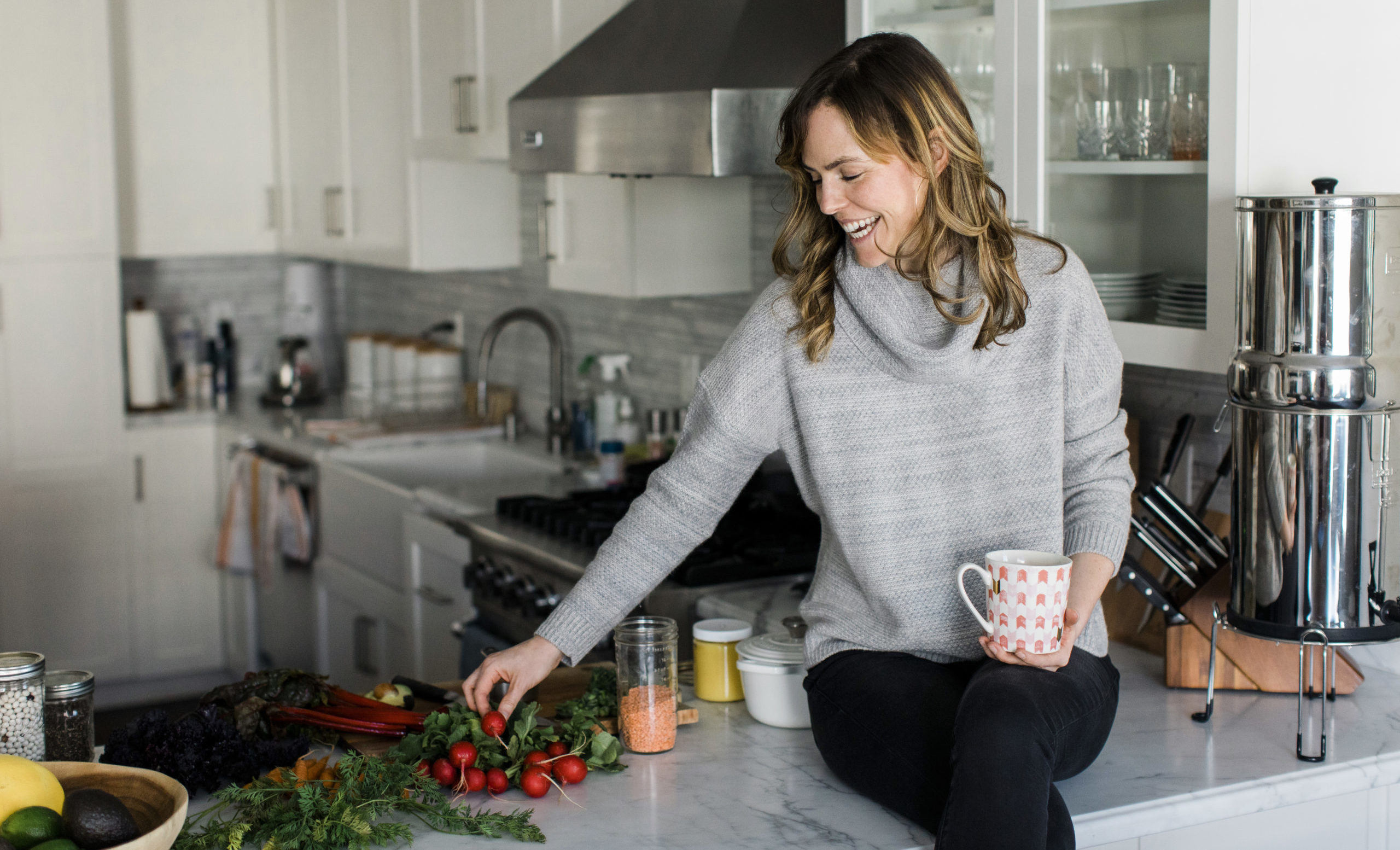My story + why I believe in food as medicine
Raise your hand if you can recall a time when your body paid the price of a stressful job – the absence of work-life balance, the feeling of being continually overworked and physically sick and run down. At this point, that’s likely all of us, and this is exactly the state I’d been living in since graduating from college over a decade ago. I left San Diego and moved up to the Bay Area to take a job in marketing at a healthcare startup and had ambitions to integrate into the tech scene. Embracing the hamster wheel energy of working, pushing, and succeeding. After a while I found myself in a pressure cooker environment — working harder, faster, no matter the cost, to the point where my mind and body were screaming for relief.
In the midst of all this, I caught a routine seasonal stomach bug – no big deal, right? After a few days home resting, I believed I had it under control so I rushed back to work. However, it became increasingly hard to suppress the latent symptoms I was experiencing: abdominal pain so intense that I could barely turn my head and neck, or such severe nausea that swallowing my own saliva sent me running for the restroom. Foolishly, I continued to push down these symptoms and signs my body was sending me. After a few more long months, I found myself in the hospital and hooked up to a feeding tube. I had lost too much weight and the persistent strain on my body ended up weakening and shutting down other essential bodily systems.

As if things couldn’t get more complicated, while in the hospital I contracted a potentially deadly infection. My extensive time hooked up to machines, under anesthesia for tests, and with a highly compromised immune system led to Clostridium Difficile (or “C. Diff”, for short) — a serious bacterial infection of the colon that doctors can only treat with an aggressive regimen of antibiotics. After a couple of weeks, I was ultimately discharged with a vague “severe gastroparesis and IBS” diagnosis and was prescribed eight medications including anti-nausea pills, strong laxatives, anti-anxiety medications, pain relievers, and antispasmodics.
As I diligently took my doctor’s orders to be the end-all for my treatment and path forward, a thought occurred to me: while in the hospital why hadn’t dietary and lifestyle questions been raised? Like, “What do you eat? Do you cook? How is your work-life balance?” When I was finally able to eat on my own again, I remember sitting in my hospital bed being served tray after tray of highly processed, sugary beige foods — none of this food had ever been ALIVE (grown, harvested, etc.). This realization hit me like a ton of bricks. Despite how obvious it might seem now, the idea that the quality of what we put in our bodies has a direct impact on our physical and mental health, was completely foreign yet simultaneously empowering to me.

This would lead to a major mental shift: at the end of the day, only I could make the best decisions for my body and would take medical advice and prescriptions as suggestions, but ultimately I had the ability to decide what my body needed to heal and thrive.
Looking back, the entire experience was a blessing in disguise. I distinctly remember enduring my fifth colonoscopy before my 30th birthday, feeling sorry for myself, wondering if my body would ever feel “normal” again. Something I’d taken for granted just years earlier. For the first time, my journey of self-exploration revealed that I had been tuning out the most important voice of guidance: my deep connection to my body. I would come to learn that the body will never lie, and at least for me, it is the most intuitive and direct communicator for what is needed. I thought about all of the strong antibiotics and drugs I’d taken over the preceding years in hopes of feeling better, and redirected my renewed energy to understanding the medicine that we put into our bodies every day: food. Nutrient-dense foods, proper methods of preparation, eating in a ‘rest and digest’ state, and the right balance of macronutrients and micronutrients can have a profoundly positive impact on our quality of life.
I transformed my life by transforming my diet and lifestyle — and despite my doctors’ protests — I’d successfully weaned myself off of all the powerful and addictive medications. Food healed my gut, my happiness, and brought me along a journey in search of deeper knowledge, including earning my accreditation as a Holistic Nutritionist. Through two years of course work, I tackled the science of what we eat, designed specific meal plans for different health conditions, and most importantly this began with simply learning to properly read nutritional labels and ingredients, as well as navigating grocery stores with a focus on the exterior aisles vs. the interior packaged good aisles. An Eastern Medicine philosophy and perhaps one of the most valuable lessons I learned and am eager to share is the importance of taking a step back and identifying the various “branch” symptoms someone might be experiencing and connecting them to identify the “root” cause.
These days, a fun Friday night looks a little different than it used to — losing myself in chopping, boiling, sauteing, and baking a delicious meal for my loved ones while sipping hot tea and listening to a great podcast or playlist. I’ll be honest — I still haven’t quite mastered the art of meditation (despite my best efforts), however, I have discovered a new form of soothing and calming that is even more profound — nourishing my body through food.
There is a saying that you should always trust your gut. This phrase has come to be my guiding light, mantra, radical self-compassion, whatever you want to call it. Trust your gut is how I try to navigate each day. It has guided me back to health, vitality, and happiness.
I am hoping my journey and the knowledge I gained in school can be helpful to you as you learn to trust your gut and nourish your body and mind. On this blog I plan to share helpful tips and tricks like my favorite year round pantry staples, what are food intolerances vs. sensitivities, how to make take-out just a little bit healthier and what’s the deal with macros and how to navigate filling your plate.
Wishing you good health and happiness,
Lizzie
PS — Are there specific topics you would be interested in learning more about? Comment below and share what dietary and lifestyle topics you have been wondering about!

Leave a Reply Cancel reply
Copyright © 2022 Gut Feelings Nutrition, LLC. All Rights Reserved.
Website Design by K Design Co.